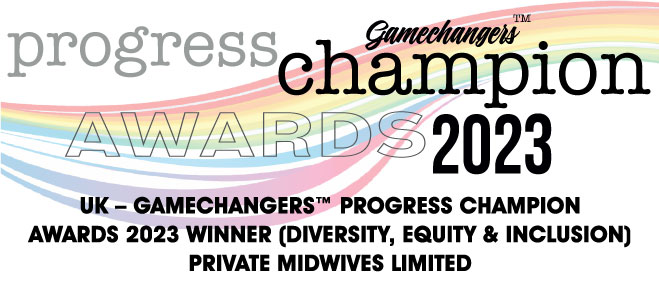
Postnatal Depression (PND), also known as Postpartum Depression, is a common but treatable condition that affects more than 1:10 women and about 1:10 men and co-parents within the first year of their baby being born. In this blog, we delve into the various aspects of postnatal depression, including its causes, symptoms, potential duration and treatment.
What Causes Postnatal Depression?
Postnatal depression is a complex condition with multifactorial causes. While the exact reasons behind its onset remain unclear, a combination of biological, psychological and environmental factors can contribute. Some common reasons for developing postnatal depression include but are not limited to:
- A history of having suffered PND previously
- A history of having suffered depression or other mental health problems previously
- Having suffered depression or anxiety during pregnancy
- A lack of support
- A recent stressful event, such as a relationship ending
- Having experienced or currently experiencing domestic violence or abuse
- Having arrived in a developed country as a refugee or to seek asylum
- Hormonal changes following childbirth
- Sleep deprivation
- Your partner being affected by PND
Similarly to a birth plan, making a postnatal plan, may help assess and counteract your individual risk of developing postnatal depression.
Do I Have Postnatal Depression?
In many ways, postnatal depression can feel similar to depression the most notable difference being that with PND, understandably, the focus is on the baby and the challenges associated with being a parent. For example, you may worry excessively about your baby’s wellbeing or health; you may judge yourself negatively as a parent; it may even be hard to bond with your baby. It is extremely important for you and your loved ones to be aware of these feelings persisting, because PND is a very treatable condition, but if it’s missed it can have an ongoing negative impact on you and your family.
People who have suffered PND often say that they initially felt very sad and low. Some described experiencing anxiety or irritability and found it hard to look after themselves and/or their baby. Sufferers sometimes report not being able to sleep, even when their baby is sleeping. They may have experienced poor appetite or, in contrast, may have struggled with comfort eating. Conversely, some people are very good at masking their symptoms (we call this “high functioning”), this doesn’t mean that they are coping any better or hurting less but their symptoms might be less obvious as they may create a veneer of everything being perfect, perhaps a little too perfect. Other common symptoms include feeling guilty, having negative thoughts and being unable to enjoy every day normal activities. Sometimes sufferers of PND may even feel that life just isn’t worth living, leading to suicidal ideation or intent.
Every person is an individual and may experience some, but not all, of the common symptoms of PND. However, all of these symptoms are treatable and reaching out for help is the first step to recovery
Having robust antenatal and postnatal care with a trusted midwife who knows you, can increase the chances of early detection and treatment of postnatal depression, which is crucial in preventing escalation. With Private Midwives, you will be assigned a named midwife who will care for you throughout the entirety of your pregnancy, birth and postnatal journey, this continuity of carer has many benefits, one of which is being able to observe any changes in mood over time and offer help and support.
When does postnatal depression start?
Postnatal depression often starts within 1-2 months of a baby being born but can start several months later. In fact, it can begin anytime within the first year following birth. Some people start experiencing symptoms within the first few weeks, whilst others notice them gradually emerging over the months. Its crucial to remember that each person’s experience is unique and valid.
How long can postnatal depression last?
The duration of postnatal depression can vary widely from person to person. Some people may experience mild symptoms that resolve in a few weeks, while others might struggle with more severe symptoms for several months or even longer. A study conducted in the UK found that about 15% of women experienced symptoms of postnatal depression up to 33 months after giving birth. The evidence around PND in men and co-parents is lacking as we’ve only recently recognised this condition, but we have no reason to suspect that it is any less debilitating or long lasting than it is for women.
What are the Treatments for Postnatal Depression?
There are three main types of recommended treatment for PND;
- Self-help – Talking to your family and friends about your feelings, making time to do things you enjoy, getting as much sleep as you can at night, exercising regularly and eating a healthy diet
- Talk therapy – Your GP may be able to recommend a self-help course or refer you for a course of therapy, such as cognitive behavioural therapy (CBT)
- Medications such as antidepressants – these may be recommended if the depression is deemed too severe or other treatments have not helped; your GP can prescribe a medicine that’s safe to take while breastfeeding. Medication is most effective when combined with some level of professional talk therapy.
Talk to your midwife or GP about the pros and cons of different treatments so you can decide together what’s best for you. They may check to see if any physical health problems may be causing or contributing to feelings of depression such as a thyroid disorder or low iron levels.
Why is Treatment so Important?
Most people will get better without medical treatment or talk therapy in about 3 to 6 months, but that’s a long time to wait when you’re suffering. We know that 1 in 4 mothers with PND are still suffering with PND when their baby reaches their first birthday. We don’t know why PND resolves for some people, or why symptoms continue for others, and we can’t predict what symptoms any one person will present with or whether those symptoms will resolve themselves or require treatment.
Depression can be debilitating; it can affect your relationship with your baby and partner and can negatively affect your child’s development. As such, I think we can all agree that the shorter the duration of PND, the better it is for everyone. Speak to your GP, midwife, or health visitor as soon as possible if you think you might have postnatal depression or depression during pregnancy (antenatal depression). There is no shame, you haven’t done anything wrong. PND is an illness, and with appropriate treatment and support most people make a full recovery, although it can take time.
Postnatal depression is a serious condition that requires understanding and support. Recognising the potential causes, identifying the symptoms and knowing when and how to seek help are crucial steps in managing this condition. If you or someone you know is struggling with their mental health, remember that help is available and that seeking help is a sign of strength. By raising awareness and fostering open conversations, we can provide a nurturing environment for families and contribute to their well being during pregnancy and the challenging postpartum period.
If you have any questions at all about postnatal depression please don’t hesitate to contact us
 LANGUAGE
LANGUAGE





You must be logged in to post a comment.